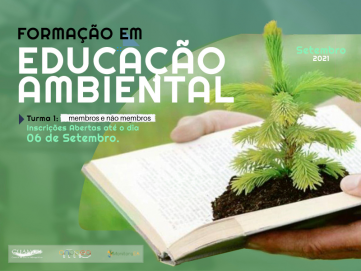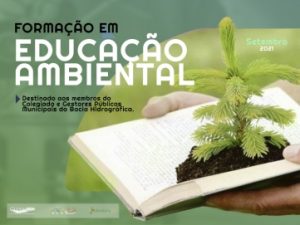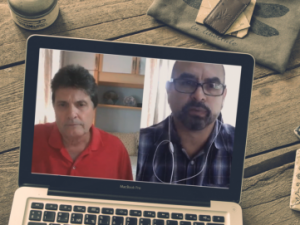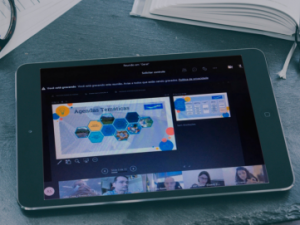The Guandu-RJ Committee is making available the training process “Indicators of Public Policies for Environmental Education” by MonitoraEA, a system built and applied by ANPPEA-National Articulation of Public Policies for Environmental Education. The objective is to contribute to the strengthening of public policies of environmental education for the transition to sustainable societies in the basin that supplies nine million people in the Metropolitan Region of Rio de Janeiro. In this first group, the priority public is the member organizations of the collegiate, however, representatives of organizations that are not part of the Committee they can also register and compete for one of the vacancies. Registration ends on the 6th and the course will start on September 15th.
The initiative came from the Environmental Education Working Group of the Guandu-RJ Committee and is part of a structure provided for in the Strategic Plan for Water Resources, which, in parallel, is preparing the Environmental Education Plan for the Basin, with an emphasis on water resources . The training aims to promote dialogues and inter-institutional interaction, enhancing public policies for environmental education in the hydrographic basins of the Guandu, Guarda and Guandu-Mirim rivers; identify, monitor and evaluate public policies for environmental education in the hydrographic basins of the Guandu, Guarda and Guandu-Mirim rivers; and contribute to the construction of knowledge on monitoring, evaluation and indicators of public environmental education policies through the MonitoraEA System.
Four groups will be made available, the first, starting on the 15th, will be for members of the Collegiate and organizations in the basin. The other three groups will target municipal managers from the cities of Itaguaí, Seropédica, Queimados, Japeri, Nova Iguaçu, Paracambi, Rio de Janeiro, Piraí, Rio Claro, Mangaratiba, Mendes, Barra do Piraí, Engineer Paulo de Frontin, Miguel Pereira and Vassouras – municipalities that are part of the basin. Places are limited and will be filled in accordance with the criteria established by the Environmental Education Working Group.
The pedagogical activities of the formative process will be developed through synchronous meetings (through the Zoom platform), and in asynchronous activities (between one meeting at Zoom and another). The activities will follow the schedule below:
Preparatory Dialogues (via WhatsApp): from 15 to 22/09
Meeting 1: 09/24, from 2 pm to 6 pm
Meeting 2: 10/1, from 2 pm to 6 pm
Meeting 3: 10/15, from 2 pm to 6 pm
Meeting 4: 10/22, from 2 pm to 6 pm
Meeting 5: 11/5, from 2 pm to 6 pm
The training process has a total workload of 48 hours. Only those who participate in all activities will be certified, that is, 100% of the schedule. Therefore, it is important that only those who are available apply for vacancies. For the content to reach its objective, it is also important that the registered act in policies and/or actions in the area of environmental education.
The MonitoraEA Brazilian System was built by ANPPEA – National Articulation of Public Policies on Environmental Education, from its executive secretariat, composed by FunBEA – Brazilian Environmental Education Fund; Laboratory of Education and Environmental Policy at the Luiz de Queiroz School of Agriculture of the University of São Paulo (OCA/ESALQ/USP); by the Engajados Institute and the Laboratory for Analysis and Development of Indicators for Sustainability, of the General Coordination of Earth Sciences, of the National Institute for Space Research (LADIS/CGCT/INPE).
COMMUNICATION GUANDU COMMITTEE
Telephone: (21) 3787 3729
E mail: comunicacao.guandu@agevap.org.br




